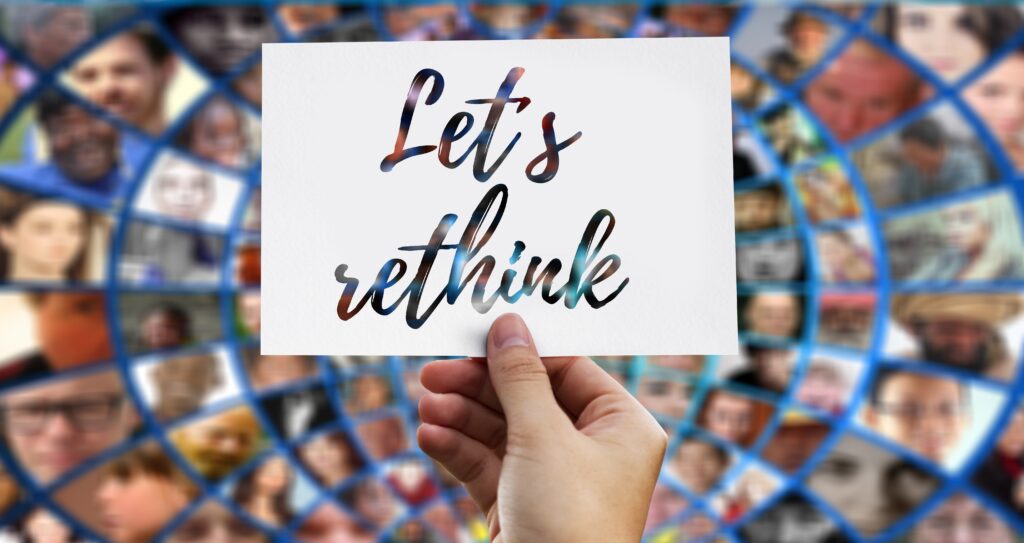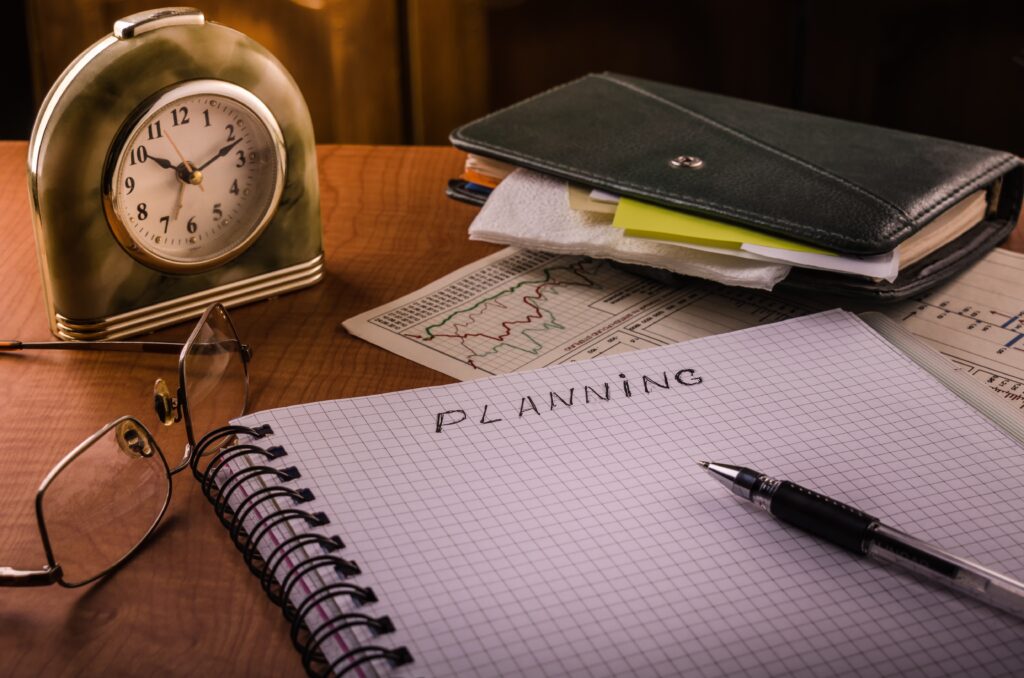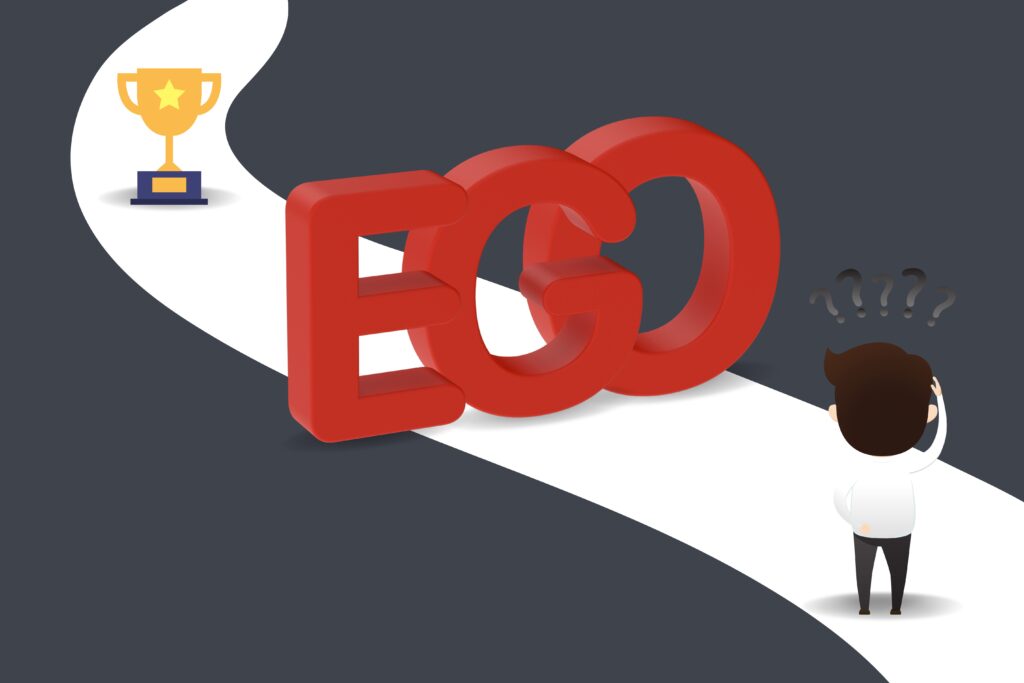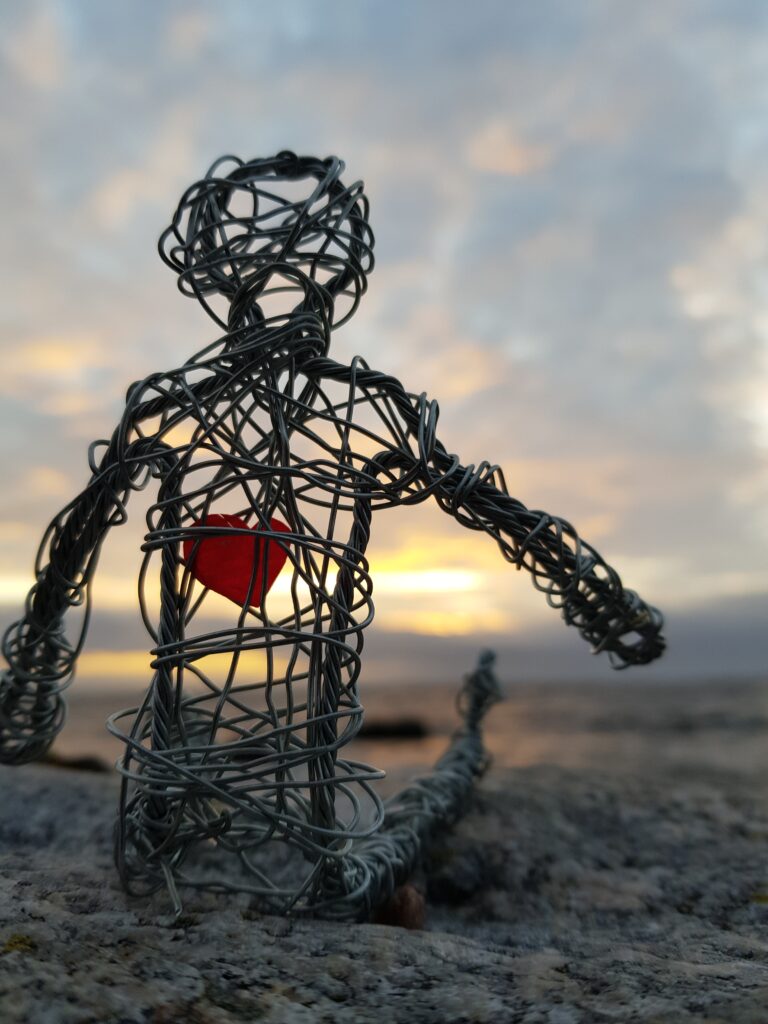Introduction: Is Ego the Enemy? Rethinking Our Relationship with Self

Explaining the title:
The title, “Is the ego the enemy? Rethinking our relationship with ourselves”, asks a question that challenges common ideas. Usually, we think of ego as something bad, which makes us selfish and focused only on ourselves. But this blog post goes deeper, making us rethink how we view our ego. Is it really our enemy, or can we learn to control it for a better life?
why it matters:
- Questioning the Norms: The title makes us curious by questioning what we know about ego. It inspires us to learn more and think differently.
- Seeing Ourselves: The title suggests that we will explore how the ego affects our sense of self. This is important for those who want to understand themselves better.
B. Overview of Blog Post: In this blog post, we will explore ego and how it affects us. Here’s what we’ll cover: - Understanding the Ego: We’ll look at different ideas about what the ego is and how it shapes us.
- The dark side of ego: We’ll see how ego can cause problems, such as making us think we are better than others or preventing us from growing.
- Moving beyond labels: Instead of simply calling ego our enemy, we’ll learn how to deal with it in a healthy way.
- Growing from Experience: We’ll look at how understanding and managing our ego can help us grow personally, build better relationships, and live more fulfilling lives.
By exploring these topics, we hope to give you a better understanding of your ego and how it affects your life. You will also learn some practical tips to deal with it in a positive way.
A. What is the Ego and its Role in Psychology?
The ego is a complex thing in our brain, which was first talked about by Sigmund Freud. It’s like the part of us that is connected to the outside world. What does it do in psychology:
- Middle Man: The ego helps balance our wild desires (id) with what we know is right (superego). It helps us . understand how to function in the real world.
- Keeping it real: The ego tells us what’s real and what’s in our mind. It helps us make choices that are meaningful and do not get us into trouble.
- Making us “we”: The ego takes all of our memories and experiences and puts them together to make us who we are.
4. - Staying safe: When things get tough, the ego uses tactics to help us cope as if bad things aren’t happening.
B. Healthy vs unhealthy ego
It is good to have a good ego, but it is not good to have a bad ego. This is how it works:
1.Healthy Ego:
feeling good about yourself without being mean
Knowing our strengths and weaknesses
When we mess up we take the blame
being kind and understanding to others
2.Unhealthy Ego:
Thinking we’re better than everyone else
We get very upset when people criticize us
Always making excuses for your mistakes
Struggling to make friends because we’re too focused on ourselves
C. Ego in our daily life
Ego is part of everything we do every day:
- Going for goals: It helps us set goals, make plans to reach them, and keep going even when the going gets tough.
- Making choices: The ego helps us think about our options, what might have happened because of our choices, and choose the best option.
- Hanging out: It affects how we treat others, how we handle problems and how we form friendships.
- Dealing with tough things: When life gets tough, the ego helps us stay calm, deal with our emotions, and figure out what to do next.
Understanding how ego works in our lives helps us control it better for a happy, healthy life.
The downside of Ego: When “Self” Becomes a Stumbling Block
Ego is extremely important to how we see ourselves, but sometimes it can create problems and make things difficult. Let’s look at the not-so-good side of ego and how it shows up in our lives.
A. How ego causes bad behavior and emotions
Having too much ego can lead to not-so-good things like:
Feeling like you’re the best: Sometimes, we may think we’re better than everyone else and need to be told how great we are.
Acting like you are better: When we think we are the best, we may be rude or mean to others because we think they are not as good as us. in ego’s prospective.
Thinking you’re always right: We may believe we’re always right and never admit when we make mistakes.
Being defensive: When people say we did something wrong, instead of listening, we may become angry and refuse to accept it.
Always Wanting to Win: We can be obsessed with winning and feel terrible if we lose, which can make it difficult to build good relationships.
These feelings and behaviors come from the ego wanting to feel important and in control. To keep feeling like we are the best, we may even do things that aren’t very good, like trying to control others or lying about ourselves.
B. Ego as a Barrier to Growth and Relationships
If we let our ego run wild, it can make it hard for us to move forward and build good relationships:
Preventing us from learning: When we are so convinced that we are right and won’t listen to other people’s ideas, we miss opportunities to learn and become better.
Making it harder to care about others: When we focus too much on ourselves, we don’t understand or care about how other people feel.
Causing problems in relationships: Always thinking that we are the best and not listening to others can lead to fights and people not wanting to be around us.
Afraid to show our true feelings: Letting everyone think we are perfect prevents us from being real with others and showing our true self.
C. Examples from Science and Thinking Materials
Freud’s Tricks: A clever man named Sigmund Freud described how the ego uses tricks like pretending things didn’t happen or blaming others to protect itself.
Inferiority complex: Another smart man named Alfred Adler said that sometimes our ego gets bigger because deep inside we feel like we are not good enough.
Thinking we’re super smart: Sometimes, we may think we’re better at something than we actually are, which can keep us from learning and growing.
Learning about these examples helps us see how letting our ego take over can mess things up in our lives.
Rethinking Our Relationship with Self: Beyond the Ego’s Grasp
The ego helps dictate who we are, but it shouldn’t be the only thing that dictates it. We can create a better relationship with ourselves by becoming more self-aware, humble and understanding.
A. Knowing Yourself Better: How to Deal with Your Ego
Being self-aware is extremely important to manage your ego. This means:
Understanding what you react to: Figuring out what situations or things make you feel critical or make you defensive.
Seeing your own biases: Knowing when you are thinking a certain way because of your past experiences or pre-existing ideas.
Observing your thoughts and emotions: Learn to observe your thoughts and emotions without letting them control you, so you can understand where they are coming from.
By knowing yourself better, you can choose how to act instead of letting your ego make all the decisions.
B. Ways to deal with ego problems
Here are some easy things you can do to deal with ego:

Asking for advice: Getting honest feedback from people you trust can help you see things from a different perspective.
Listen carefully: Paying attention to what others say without voicing your opinion can help you understand them better.
Think before you act: Take a moment to think about how your words or actions may affect you and others, preventing you from doing something you will regret.
Being humble: Knowing that you are good at some things, but also accepting that you are not perfect, can help you learn from others.
These tips help you see when your ego is causing problems so you can fix them before things get worse.
C. Why it is important to be polite and understanding
Being polite and understanding can really help deal with ego issues:
Being humble means knowing that you are great at some things, but also knowing that you are not perfect. It helps you learn and grow.
Understanding others helps you see things from their perspective, which can make you nicer and more caring.
By becoming more humble and understanding, you can focus on connecting with others instead of only thinking about yourself all the time.
D. Real life stories
Here are some stories of how being more balanced with yourself can help:
The CEO who listened: A boss who was really full of himself started asking his team for advice. He realized that the way he talked made them feel bad, so he changed it. His team began to work better together and get more work done.
The Artist Who Learned: An artist who didn’t like hearing what other people thought about his art, started listening. He discovered that listening to criticism helped him become better at painting. She became really good and famous for her art.
These stories show that if you can better understand your ego and be more humble, you can do a lot of good and have better relationships with others.
By being self-aware, humble, and understanding others, you can build a better relationship with yourself. It can help you move forward, make better friends, and live a happier life.
Ego in Society and Culture: The “Me” Versus the “We”
Ego doesn’t just affect one person; It also influences how our society works and what we think is important. Let’s look at what egotism looks like in society and think about better ways we can do things that are focused on helping everyone.
A. The big impact of ego: how it shows up in society
Politics: Sometimes, leaders care more about themselves than about the people they are supposed to help. They may say things to make people fight each other or make rules that only help them and their friends.
Social Media: People always try to show themselves perfect on social media. This can make other people feel bad about themselves because they think they are not good enough.
Celebrity culture: We look up to famous people who have lots of money and fame. But sometimes, it makes us think that we too deserve special treatment, even if we don’t do anything to earn it.
These examples show how society can focus more on people showing off rather than working together and helping everyone do good.
B. Thinking about what’s really important: not just “me”

Right now, our society cares a lot about these things:
Doing things yourself: It’s good to be able to work alone, but sometimes it’s important to work together.
Wanting too many things: Trying to have more and more things does not always make us happy. It is more important to have goals that mean something to us and it is more important to have good relationships with others.
Always Wanting to Win: Competition can be fun, but if we always want to win, it can make us say mean things to each other and keep us from working together.
We need to think about whether these things really make us happy and whether there might be better ways of doing things.
C. What we can do: Thinking about “we” instead of just “I”

To improve our society we need to pay attention to the following things:
Being humble: Understanding that everyone has something to offer and we should appreciate what others do.
Being compassionate: Trying to understand how other people feel and helping them when they need it.
Working together: When we all work together, we can do things that help everyone instead of just ourselves.
If we start taking care of these things more, we can make our society a better place for everyone.
We can all help by supporting things that help everyone, talking honestly with each other, and asking our leaders to make rules that help everyone, not just a few. Do it.
Only by thinking about more than ourselves and working together, we can make the world a fairer and happier place for all.
Conclusion: Beyond Duality – A Balanced Dance with Self
A. What we learned:
In this blog we saw how our ego affects us. Here’s what we covered:
How our ego shapes who we are and how we act.
The problems that can come from having too much ego, such as preventing us from growing and causing problems in our relationships.
Ways to better understand and manage your ego, such as being self-aware and compassionate toward others.
How ego affects not only us but our entire society and why we need to change it.
B. Is ego always bad?
The question we asked at the beginning – “Is ego the enemy?” – There is no simple answer to this. Our ego is a big part of us, helping us understand who we are and how we fit into the world. But if we let it get too big, it can cause problems.
The main thing is to find balance. We need to understand where our ego can create problems and work on being more open to learning and growing.
C. What you can do:

This journey of learning about yourself does not stop here. Here’s what you can do next:
1.Think about a time when your ego may have caused problems in your life.
2.Pay attention to how you feel and what motivates you to act a certain way.
3.Try to be humble, acknowledging that you don’t know everything and can always learn more.
4.Be kind to others and try to understand where they are coming from.
5.By doing these things, you can learn more about yourself, build better relationships, and make the world a better place for everyone.
